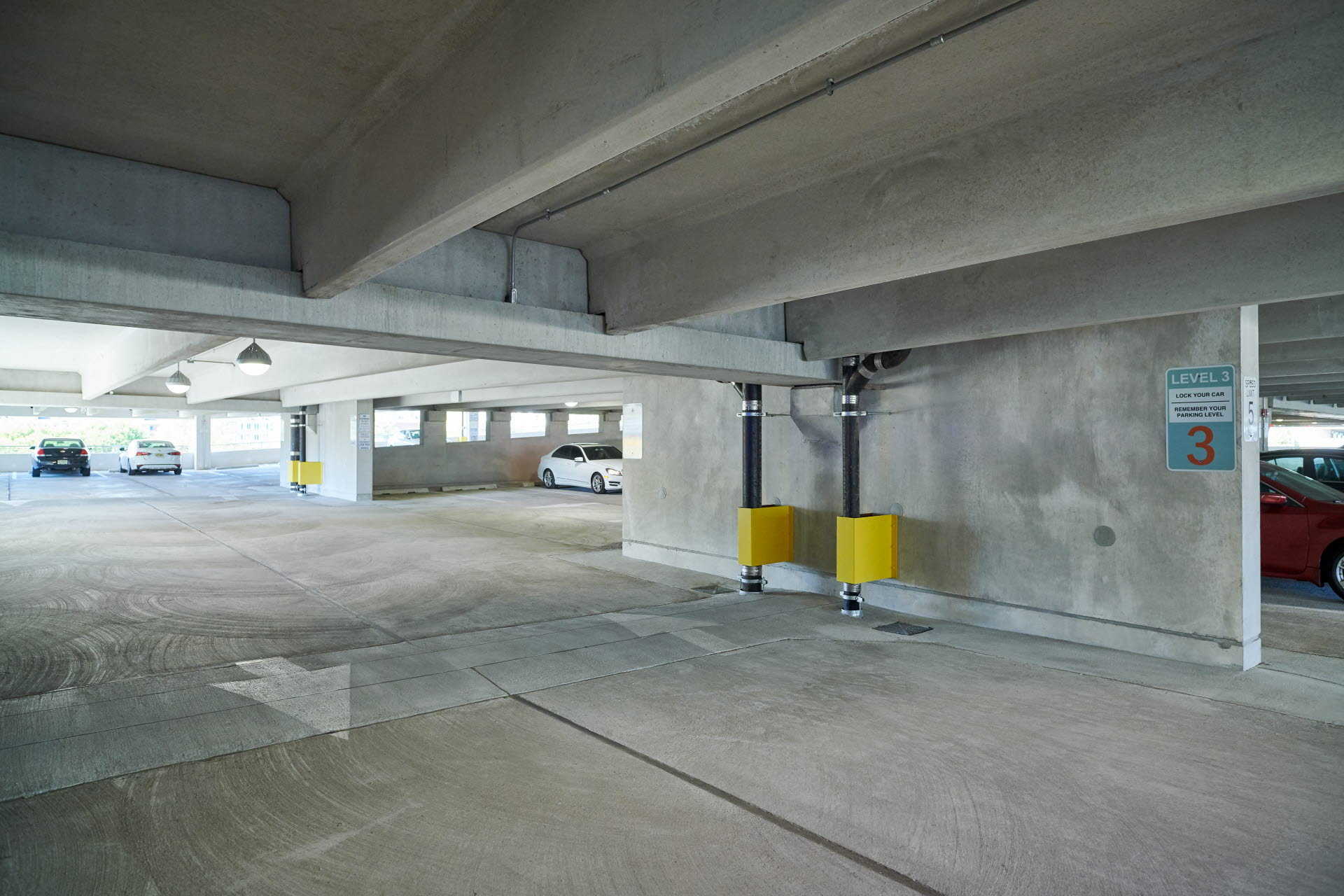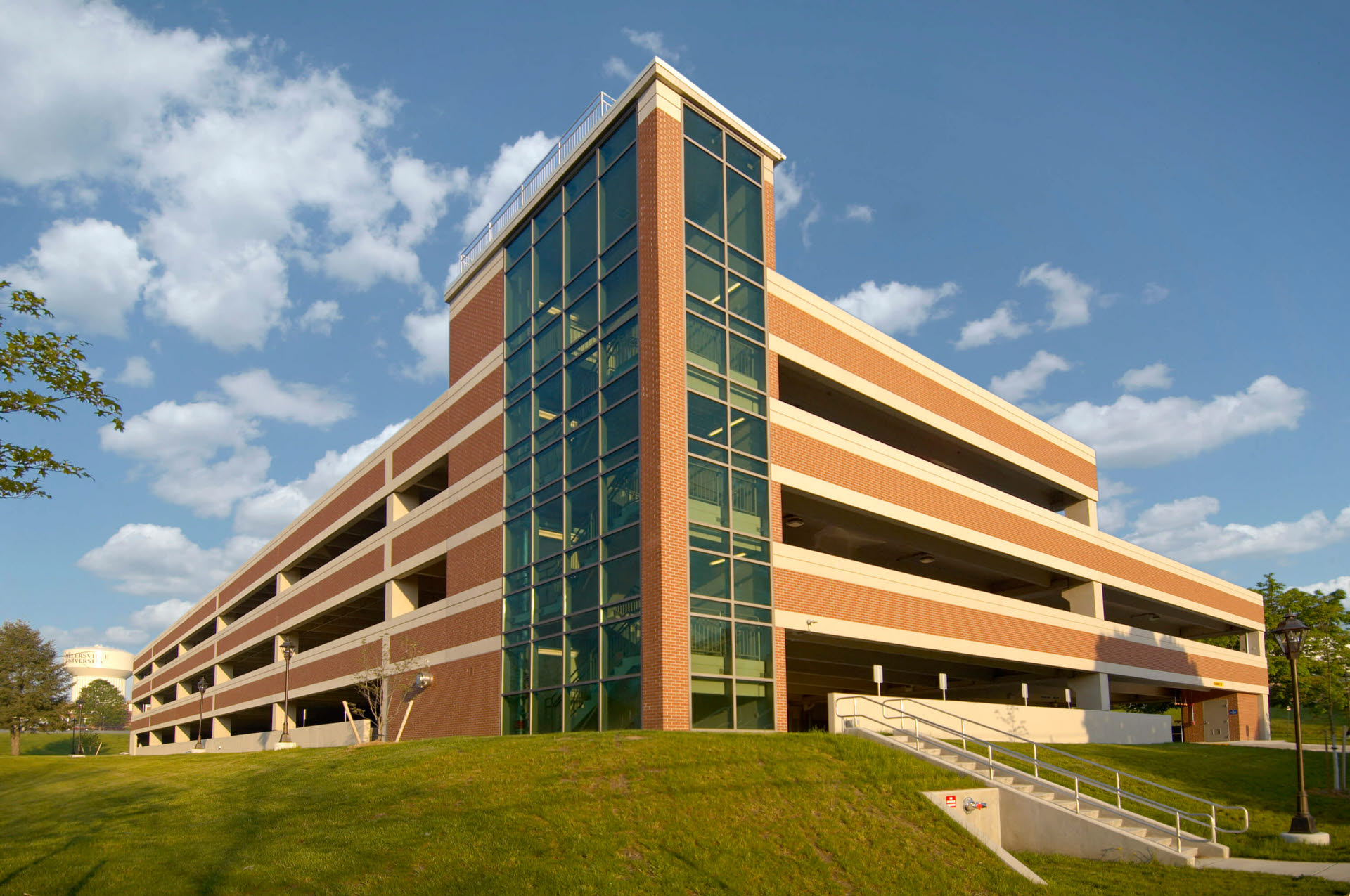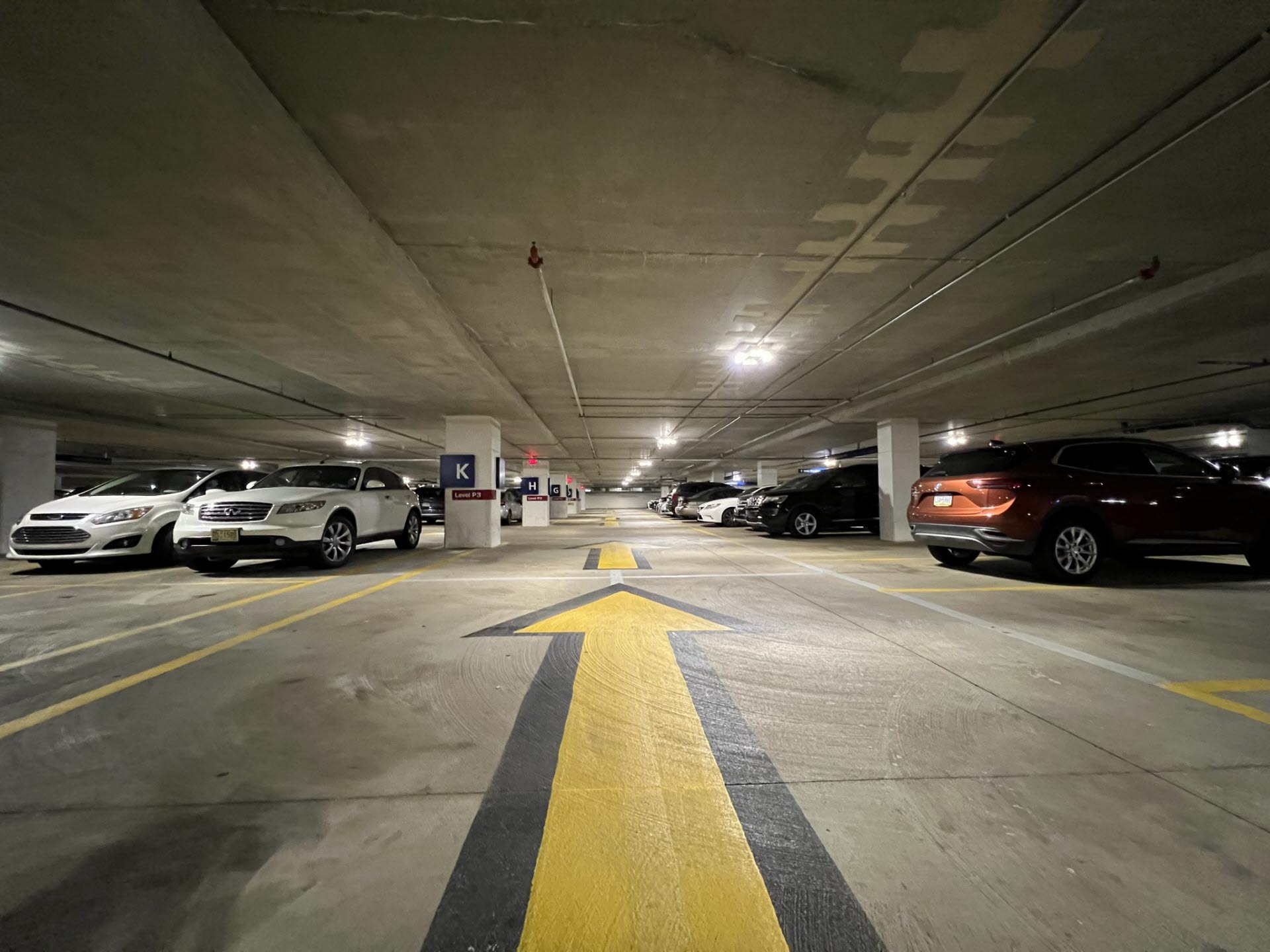Preventive vs. Predictive Parking Garage Maintenance

When comparing preventive vs. predictive parking garage maintenance, it's clear each offers distinct advantages as well as presents specific challenges. Continue reading to discover the key benefits and limitations of each maintenance method and why StructureCare uses a predictive maintenance approach.
Parking Garage Maintenance Benefits
Before we dive into comparing preventive vs. predictive parking garage maintenance, it’s important to discuss the many advantages of the general upkeep and care of your structure.
Parking garage maintenance offers a wide range of benefits that contribute to the longevity, safety, and profitability of your structure. Here's a quick look at some of the key advantages:
- Extends lifespan and prevents costly repairs.
- Enhances safety and reduces liability.
- Improves aesthetics and first impressions.
- Ensures business continuity and customer satisfaction.
- Optimizes traffic flow and space utilization.
- Maintains air quality and hygiene.
- Increases compliance and risk mitigation.
- Offers more budget stability.
Investing in parking garage maintenance is a proactive strategy that saves money in the long run, enhances safety, improves reputation, and ensures the continued functionality and value of the property. We’ll talk more about how StructureCare can help you reap the many parking garage maintenance benefits later in this blog.

What Is Preventive Parking Garage Maintenance?
Preventive maintenance (PM) is a common strategy that aims to prevent structural failures through scheduled interventions. Based on historical data and best practices, preventive maintenance is designed to identify and mitigate potential problems before they escalate.
Below, we’ve broken down the key components of preventative parking garage maintenance as well as its benefits and limitations.
Key Components:
- It’s pre-scheduled and performed at consistent intervals.
- It typically requires parts or areas of the garage to be temporarily out of service.
- Maintenance tasks often follow a detailed checklist covering inspections, cleaning, and replacements or repairs.
- Schedules can range from frequent (daily) to less frequent (annually), depending on the specific structure and operational needs.
- Maintenance is carried out regardless of whether there are any visible signs of trouble.
Benefits:
- Less unexpected downtime.
- Lower repair costs.
- Easier planning & budgeting.
Limitations:
- May risk addressing problems that don’t exist.
- May increase planned downtime.
- May not address the root cause.
What Is Predictive Parking Garage Maintenance?
A predictive parking garage maintenance strategy uses a combination of real-time monitoring, advanced analytics, and visual surveys and monitoring to anticipate when components of the parking structure are likely to deteriorate or fail. Doing this allows specialists to perform the necessary repairs or replacements before a problem occurs.
Like preventive maintenance, predictive parking garage maintenance is a proactive strategy. However, its key differentiator lies in its use of condition-monitoring and assessment. This allows for a real-time, data-driven assessment of asset performance, pinpointing potential issues before they lead to failure.
While preventive parking garage maintenance relies on general best practices and historical averages, predictive maintenance actively collects data in various forms. This data then flags potential problems, enabling timely intervention.
Below, we’ve provided some key components of predictive parking garage maintenance as well as its benefits and limitations.
Key Components:
- Maintenance tasks can be performed while the garage is running normally.
- Identifies and addresses potential problems before a failure occurs.
- Allows resources to be used in targeted ways, ensuring effectiveness.
Benefits:
- Optimizes maintenance timing.
- Minimizes downtime.
- Reduces maintenance costs.
Limitations:
- May require new equipment and technology to collect and share data.
- May require additional experienced personnel or training of existing personnel.
- More complex than preventative maintenance.

Preventive vs. Predictive Parking Garage Maintenance: Which Is Better?
We’ve covered parking garage maintenance benefits, limitations, and key components of both preventive and predictive maintenance. Now it’s time to see which is the better choice for you and your team.
Both preventive maintenance (PM) and predictive maintenance (PdM) are proactive approaches. However, the core difference lies in how maintenance tasks are triggered and scheduled.
As we mentioned before, preventive maintenance operates on a fixed schedule. This scheduling can be based on time, usage, or a calendar. Predictive maintenance, on the other hand, waits for the data to tell it when maintenance is genuinely needed. This means maintenance is performed just in the nick of time, preventing unnecessary work.
As a result, preventive maintenance can sometimes lead to performing maintenance when it's not strictly necessary, while predictive maintenance aims to optimize the timing, ensuring the necessary work is done while avoiding wasted effort.
Another key differentiator is cost and implementation. Preventive parking garage maintenance is generally simpler to put into practice. It often relies on recommendations, industry best practices, and historical data to set schedules. This usually means a lower upfront investment since it doesn't require specialized monitoring technology.
Conversely, predictive parking garage maintenance can save on unnecessary labor and repairs by only acting when truly warranted. It may demand more in terms of technology, training, and resources to implement. However, while the initial investment may be higher, the long-term benefits are unmatched.
How Does StructureCare Use Predictive Maintenance?
When comparing preventive vs. predictive parking garage maintenance, StructureCare recommends the latter. Our predictive maintenance approach leverages data from your entire structure and our extensive parking garage experience to forecast future needs, typically over the next three to five years.
This isn't guesswork; it's a strategic blend of our expertise, historical insights, and thorough inspections. The outcome? Your parking garage enjoys an extended service life, you avoid unexpected maintenance expenses, and your business operations remain smooth and continuous.
If we identify a potential structural problem, our garage restoration services team is prepared to act. We'll meticulously schedule repairs and maintenance for your concrete parking garage at the most convenient times, handling all vendors and timelines. Plus, you'll receive a detailed proposal upfront, ensuring your budget remains stable.

Predictive Parking Garage Maintenance Guide
Not sure how to start? No problem, below we’ve listed some predictive parking garage maintenance guidelines you can use when implementing your plan.
- Monitoring the real-time condition of critical assets within the garage (such as concrete decks, waterproofing systems, expansion joints, lighting, ventilation, etc.).
- Collecting and analyzing data from various sources, historical maintenance records, traffic patterns, visual surveys and external factors like weather.
- Identifying patterns and anomalies that indicate potential deterioration or impending failure.
- Predicting with a high degree of accuracy when a specific component or section of the garage will need maintenance or repair.
- Scheduling maintenance interventions, only when needed, thereby minimizing downtime, optimizing resource allocation (labor, parts), and preventing more extensive and costly repairs.
If you’re still unsure what’s right for you after reading our preventive vs. predictive parking garage maintenance guide, consider reaching out to experts for help. StructureCare provides predictive structural maintenance strategies designed to help you plan accurately and achieve your maintenance goals within budget.
Ready to experience smarter parking garage maintenance? Talk to a team member to see how we can help today.
Problem? Question?
Let's solve it. And not just for today — for the long term, too.